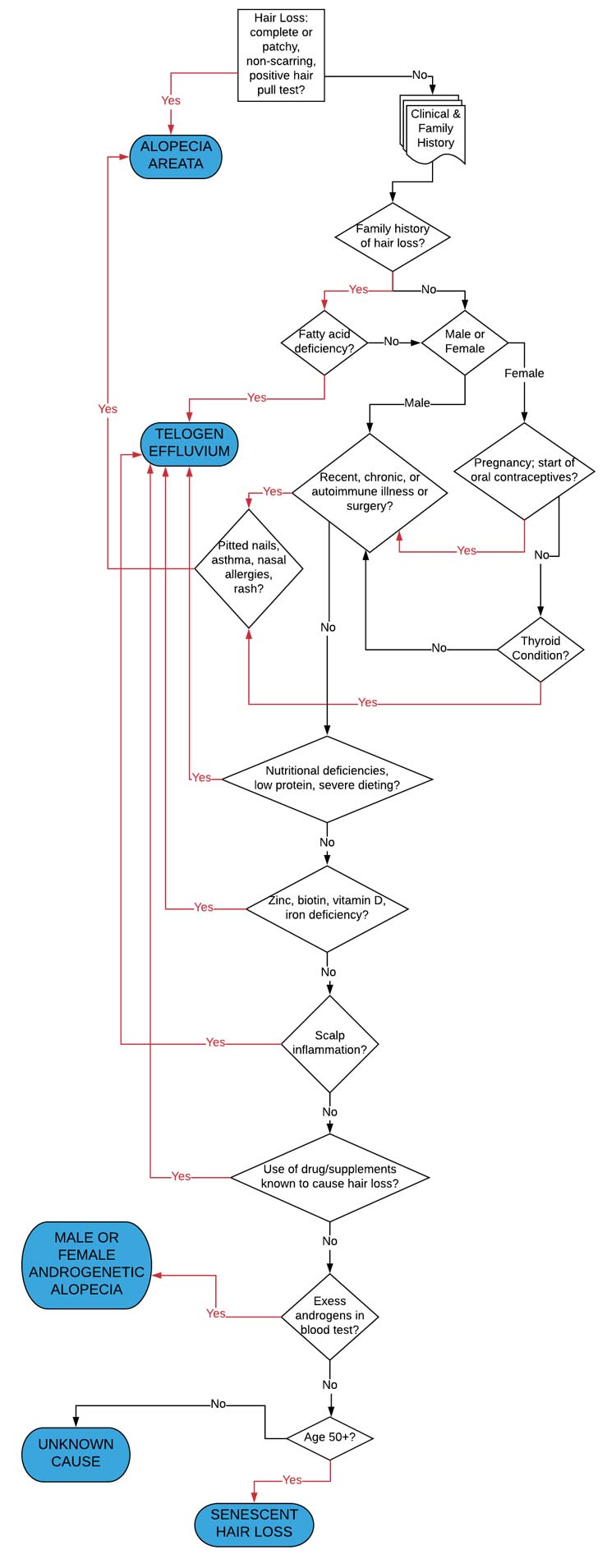How is Hair Loss Diagnosed?

Once it’s determined that there is clinically evident hair loss, a clinician will do is look at a patient’s clinical and family history. Why? Because certain hair loss conditions have a genetic component, others are a result of a hormonal imbalance or nutrient deficiency, and still others have been linked to seemingly unrelated medical conditions. Often there may be more than one contributing factor. For example, while male and female pattern baldness have a genetic component, hormonal imbalances from conditions such as obesity and diabetes may lead to or exacerbate this type of hair loss as well.(3)
Although certainly diagnosing a hair loss condition is not an exact science, research and clinical experience from experts provide some good clues that can help determine what type you have and how best to regrow your hair.(1, 3, 29)

Diagnosing Hair Loss
